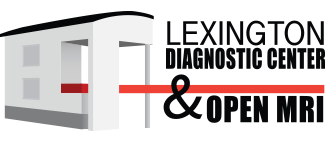You Have the Power to Reduce Your Healthcare Costs

Regardless of whether you have the best possible health insurance, a middle-of-the-road plan, or no plan at all, healthcare costs are a continuing concern for the American family. Healthcare expenses continue to rise while wages have remained stagnant. As a result, healthcare costs (insurance premiums, deductibles and co-pays), are eating up a larger portion of the family budget now than ever before.
In fact, the average family spends about 10 percent of its annual income on healthcare-related expenses; up from 6.5 percent just a decade ago.
While it may seem there’s nothing an individual or family can do about it, there is. And if enough people take these steps, we just might be able to get healthcare costs under control.
1. Talk to your doctor about the necessity of the proposed test or procedure.
Whether you are concerned about costs or not, this is always a good discussion to have with your provider. You should never have a test or procedure without being completely clear about why it’s necessary and how it will benefit you. There’s nothing wrong with asking about alternatives that may be just as effective and less expensive.
2. Review your insurance coverage.
If you have commercial or government-sponsored insurance, it’s a good idea to review your insurance coverage to determine whether the test/procedure will be covered and under what circumstances. If it’s unclear, call your insurance company or talk to your human resources department to verify coverage. Ensure that any pre-certification requirements are met. Most physician offices will take care of this for you, but it’s always a good idea to ask. More importantly, make sure all of the providers who will be involved in your care are ‘in-network.’ It’s a pretty unpleasant surprise to receive a balance bill for an out-of-network provider when you thought everything was taken care of.
3. Ask how much it will cost.
It can be extremely difficult to get a definitive answer from hospital billing departments, benefits managers and even insurance companies. Don’t trust that online cost calculator, either! Talk to a person and take notes. Keep asking until you are quoted a price. Be sure to record who told you what it would cost and when the quote was given. You may need this when bills start arriving later. The ideal situation? Work with a provider that can tell you exactly what the cost will be – and guarantee it – without hassle or uncertainty. Lexington Diagnostic Center is one such facility. LDC patients know up front what their total cost will be, with no surprises later on.
4. Don’t assume prices are the same from one provider to the next.
They aren’t. When it comes to medical imaging, for example, hospital costs are two to three times higher than those charged by a free-standing imaging center, such as Lexington Diagnostic Center. That’s because hospitals have to carry a lot of overhead for things like the cafeteria, laundry and even the Emergency Department. Because imaging is all they do, Lexington Diagnostic Center doesn’t have those expenses to pass along. At LDC, patients pay for imaging services. That’s it. Why does this matter? Even if you have a Cadillac health plan, there’s a good chance you’ll have to pay a co-insurance. Would you rather pay 20 percent of $2,000, or 20 percent of $800?
5. Ask about fees over and above the actual hospital charges.
If you’re having a lab test, an imaging study or even surgery, you’ll receive bills from more organizations than the hospital. Understanding this concept is important. When it comes to diagnostic imaging, for example, a hospital imaging department will send you its bill (the technical component) and the radiologist, who reads and interprets the exam, will send you another bill (the professional fee). When a hospital quotes their price, it is only for the technical component. The radiologist’s fee is separate. At Lexington Diagnostic Center, our price includes both the technical component and the professional fee. You never receive a bill later for the doctor who read the exam.
Lexington Diagnostic Center has been helping patients and families in Lexington and surrounding areas save on healthcare costs for more than 30 years. Medical imaging is all we do – and we do it extremely well.
Next time your doctor orders a medical imaging exam for you MRI, CT, Ultrasound, tell him or her you prefer Lexington Diagnostic Center. We are conveniently located at 1725 Harrodsburg Road, Suite 100. For more information, please give us a call at (859) 278-7226.
